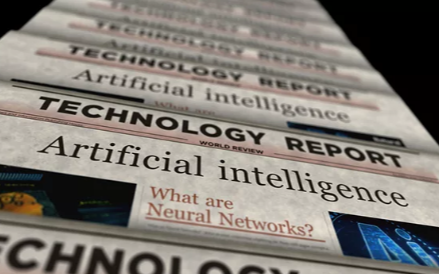Recent developments in artificial intelligence and machine learning signal a pivotal shift across numerous sectors. The integration of neural networks with quantum computing is enhancing processing capabilities and predictive accuracy. Industries such as healthcare, finance, and retail are witnessing transformative applications. However, these advancements raise significant ethical questions, particularly concerning bias and transparency. As the landscape of AI technologies evolves, the implications of these changes warrant further examination.
Recent Breakthroughs in AI Technologies
Recent advancements in artificial intelligence technologies have dramatically reshaped the landscape of machine learning applications.
Notably, the integration of neural networks with quantum computing has unlocked unprecedented processing capabilities, enabling the analysis of complex datasets at extraordinary speeds.
This synergy not only enhances predictive accuracy but also fosters innovative solutions, empowering users to explore uncharted territories of knowledge and creativity in AI-driven environments.
Read more: How Latest News Affects Your Daily Life and Decisions
Innovative Applications Transforming Industries
As industries increasingly adopt artificial intelligence and machine learning technologies, they are witnessing transformative shifts in operational efficiency and decision-making processes.
Healthcare advancements improve patient outcomes, while financial automation streamlines transactions.
Manufacturing optimization enhances productivity, and retail personalization creates tailored shopping experiences.
Additionally, agriculture efficiency is achieved through predictive analytics, enabling farmers to maximize yields and reduce waste, ultimately reshaping these sectors.
Ethical Considerations in AI and ML
The rapid integration of artificial intelligence and machine learning across various sectors not only enhances efficiency and productivity but also raises significant ethical questions that warrant careful examination.
Key concerns include bias detection, necessitating robust accountability frameworks to ensure responsible usage.
Furthermore, the implementation of transparency measures is crucial for upholding fairness standards, thereby fostering trust and promoting autonomy within the evolving landscape of AI and ML.
Future Trends and Predictions for AI and ML
How will advancements in artificial intelligence and machine learning shape the future landscape of technology and society?
The rise of autonomous systems will revolutionize industries, enhancing efficiency and decision-making.
Predictive analytics will empower organizations to anticipate trends and respond proactively, fostering innovation.
As these technologies evolve, they will enable unprecedented freedom and flexibility, redefining human interaction with machines and transforming societal norms.
Conclusion
In conclusion, the convergence of artificial intelligence and machine learning is revolutionizing industries, enhancing efficiency and personalization. While breakthroughs in neural networks and quantum computing propel innovation, ethical considerations demand vigilance in bias detection and transparency. As AI continues to evolve, the future promises not only advanced capabilities but also a renewed focus on trust and accountability. Thus, the path forward will navigate the dual imperatives of technological advancement and ethical stewardship, fostering a balanced approach to progress.











